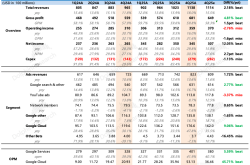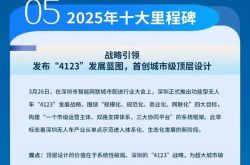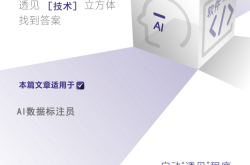Manus Quietly Exits the Scene After 100 Days of Popularity: Is China Still the Fertile Ground for AI Agents?
![]() 07/18 2025
07/18 2025
![]() 597
597
Don't blame the Chinese market.
On July 11, netizens discovered that Manus, once a highly popular AI agent product, had removed all its content from Weibo, Xiaohongshu, and Douyin. Earlier, it was also revealed that Manus had relocated its headquarters to Singapore, with over 40 core R&D team members moving there, while the remaining 80 non-core employees were laid off.
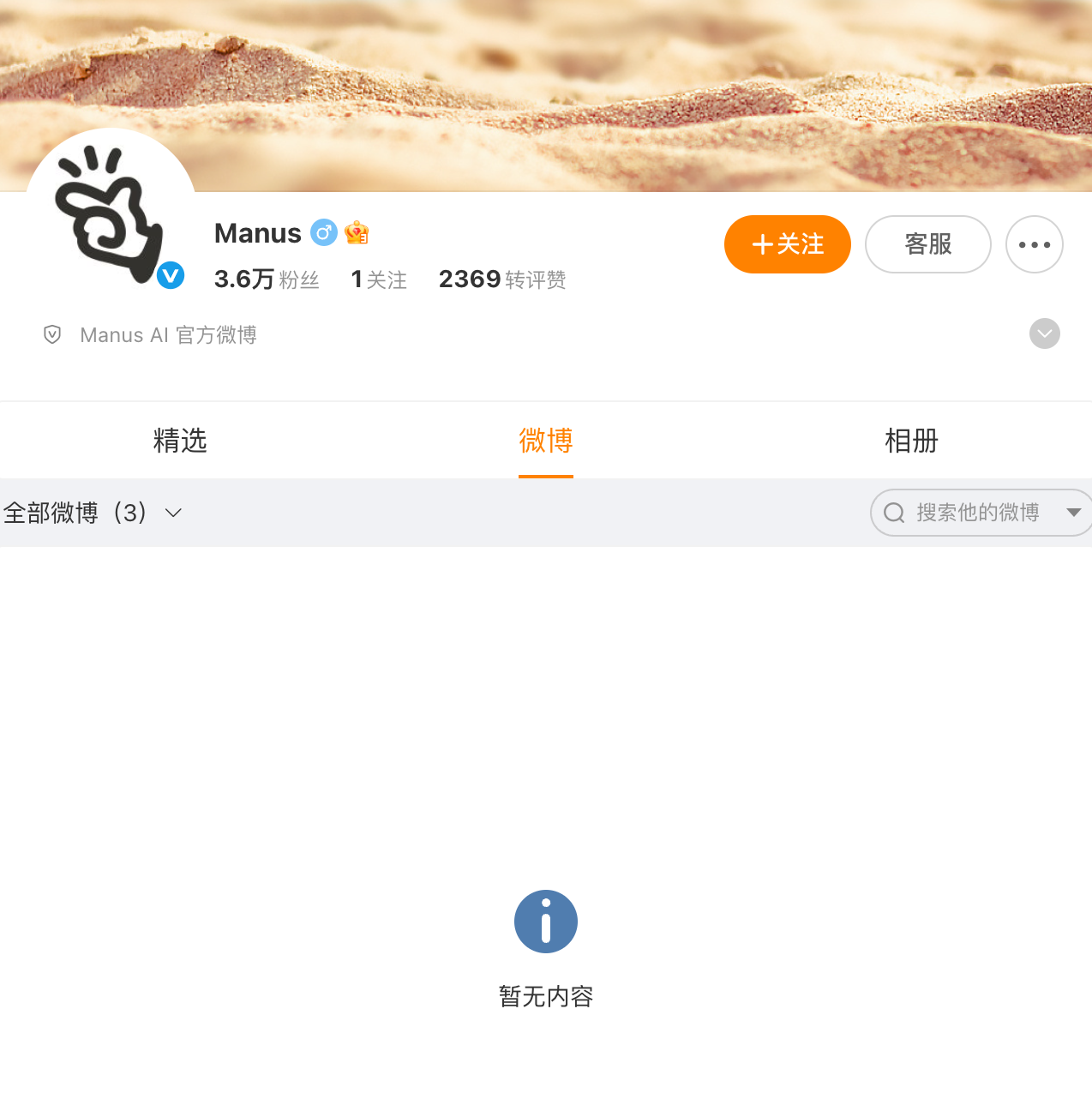
Photo/Weibo
On July 8, Manus stated, "Based on the company's operational efficiency considerations, we have decided to adjust some business teams. The company will continue to focus on core business development and enhance overall operational efficiency."
Is this a sudden retreat? Yes and no.
In fact, Zhang Tao, co-founder and product head of Manus, had already stated at the SuperAI conference in mid-June that Manus was now a Singaporean company. From the current perspective, the key event actually occurred in April when ButterflyEffect (Manus's parent company) completed a $75 million Series B funding round led by Benchmark, a Silicon Valley venture capital firm, with follow-on investments from Tencent, ZhenFund, and HSG, primarily for expanding overseas markets such as the United States, Japan, and the Middle East.
Here's a brief timeline for reference:
March: Launched and instantly became a hit;
April: Parent company completed $75 million Series B funding;
June: Completed headquarters relocation;
July: Core team moved to Singapore, other non-core members laid off.
It can be said that Manus's headquarters relocation and mass layoffs were part of the original plan, at least not a "sudden retreat" scenario. Additionally, it's worth noting that when Manus was first launched, it only supported English, with the launch video also entirely in English, and required special network conditions for registration. In short, Manus initially targeted the overseas market, with the subsequent headquarters relocation further emphasizing this focus.
But is it necessary to relocate entirely from China for the overseas market?
It's undeniable that Manus initially experienced a "blooming outside the wall, fragrance inside" phenomenon, where it garnered attention from only the tech community overseas but spread widely among the general public in China through media coverage, becoming a hot topic of discussion. Following this explosion of interest, Manus quickly noticed the "demand from Chinese users" and announced a strategic partnership with Alibaba's Tongyi Qianwen team:
"Both parties will work on realizing all functions of Manus on domestic models and computing power platforms based on the Tongyi Qianwen series of open-source models."
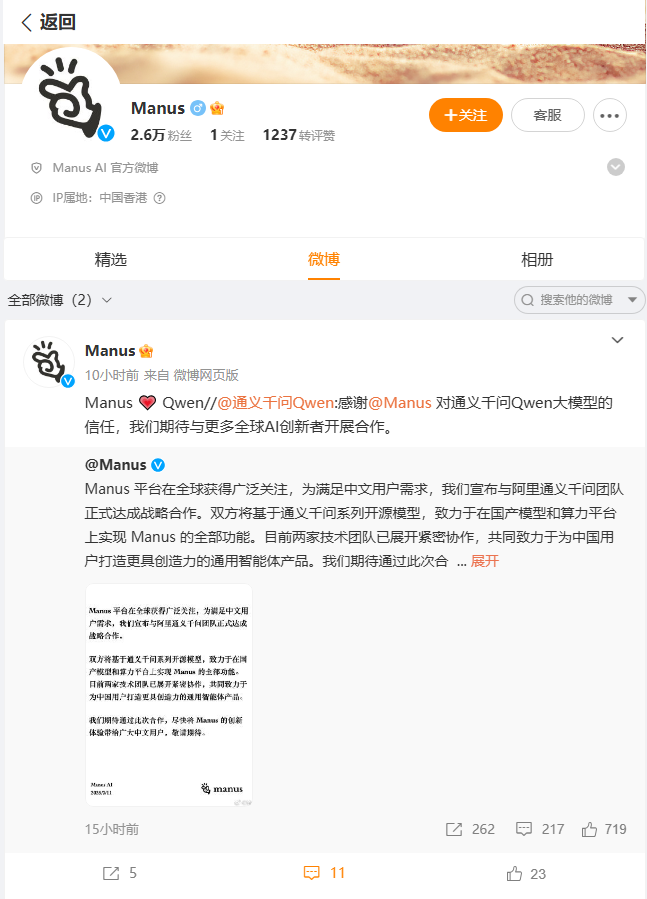
Photo/Weibo
Subsequently, the Manus official website interface was gradually translated into Chinese. These actions indicate that, perhaps due to the unexpected popularity in the domestic market or as part of an earlier plan, Manus did have intentions to develop the domestic market at that time.
However, since then, the cooperation between Manus and Tongyi Qianwen never materialized, registration still required special network conditions, and offline community exchange activities from March to June were all held overseas. Compared to the active presence on platforms like Instagram and TikTok, Manus had virtually no operations on domestic social platforms.
Today, it is undoubtedly clear that Manus has abandoned its idea of developing the domestic market, and the core reasons for this remain unknown. But specifically regarding the relocation from China, the key reason may not lie in the "business" itself. On July 9, the day after news of Manus's layoffs and relocation to Singapore broke, Xiao Hong, co-founder and CEO of Manus, posted on Jike that:
"To create a good product in a globalized market, there are many troubles that do not come from the business itself or user value... If in the end, there are good results, proving that as a founder born in China, I can also create a globalized product in a new environment, that would be great!"
Many should remember that in early March, just as the DeepSeek craze had not yet faded, a Chinese team released a general-purpose AI agent product named Manus through an English video. Prior to this, they had launched another AI product named Monica targeted at the overseas market, with a user base exceeding 20 million.
Compared to Monica's "obscurity" in the mass market, Manus can be described as reaching its peak upon launch, quickly dominating Chinese internet platforms from Xiaohongshu to WeChat public accounts to Douyin, with a large number of self-media content discussing this AI product claiming to be the "first general-purpose AI agent." An invitation code on second-hand platforms was even sold for tens of thousands of yuan.
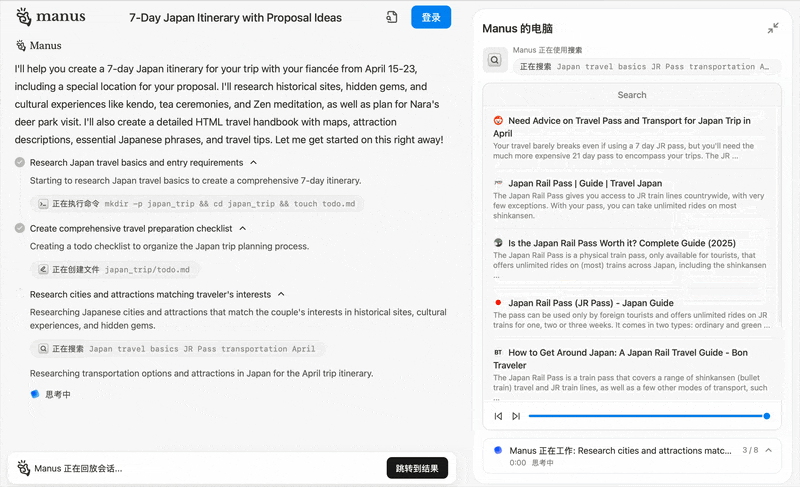
Manus use case "replay" (5x speed), Photo/Manus
It was not until May 13 that Manus announced open registration, with all registered users receiving a one-time reward of 1,000 points and 300 points daily for free to execute one task. Meanwhile, in terms of paid services, Manus offers three different levels of paid subscription plans, ranging from $16/month to $166/month, with a subsequent addition of a team version subscription for $390 per member per year.
Over the past few months, Manus has also undergone significant changes on the product level: integrating with Google Drive, launching the mobile app "Manus AI" on iOS and Android platforms, and introducing a free chat mode for all users.
However, controversies surrounding Manus have persisted in China, with some mocking it as an "insta-flop" internet celebrity product while others recognize its product value. From the data perspective, while Manus did not soar to unprecedented heights, it cannot be labeled as an "insta-flop" either.
According to data from Similarweb, a website data analysis platform, Manus received 23.1 million visits upon its March launch, with some decline in the following three months but still maintaining visits between 16-18 million. For comparison, Genspark, another AI agent product led by former Baidu executive Jing Kun, has maintained website visits between 7-9 million.
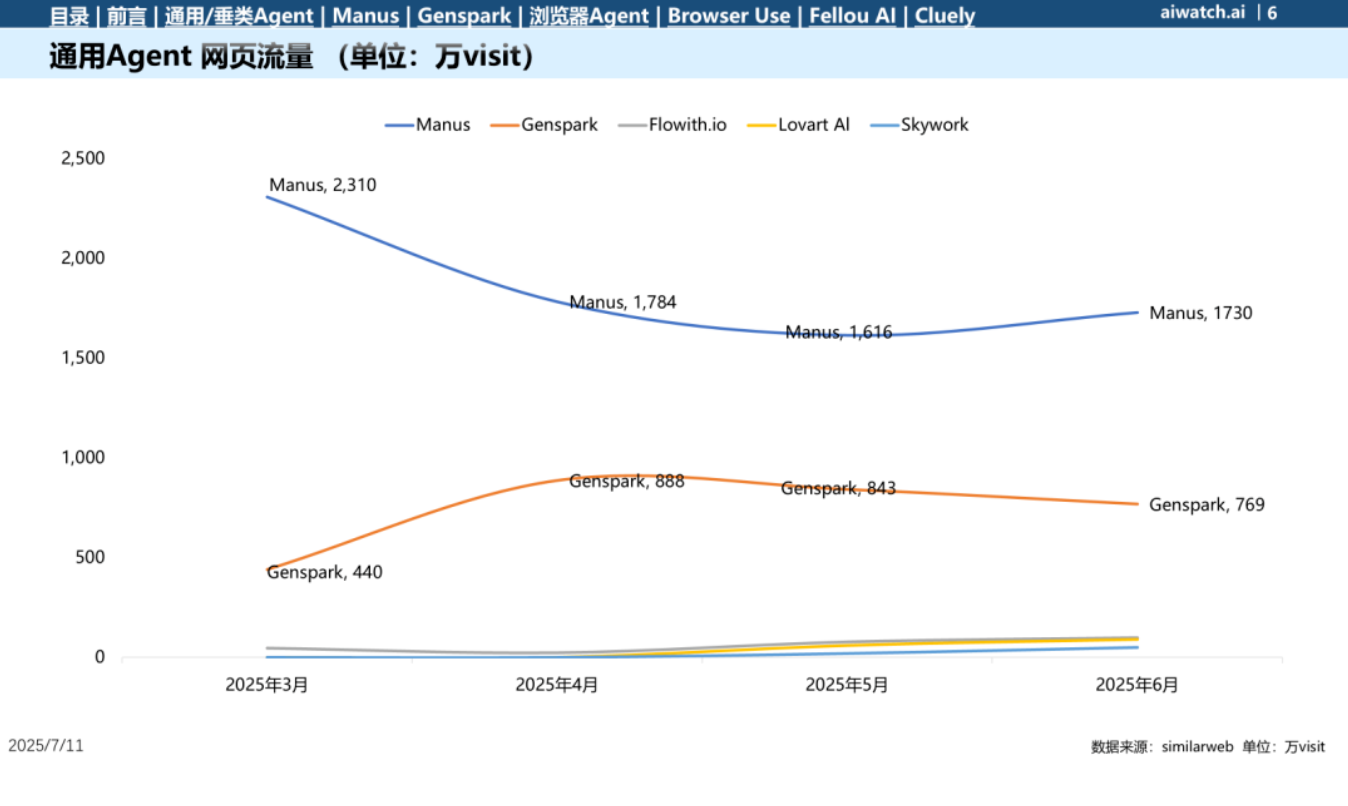
Photo/aiwatch.ai
Additionally, it's worth mentioning that the Manus AI app was listed on Google Play Store in April, with downloads in the millions, and also launched on the App Store in May, although mobile users and traffic from these platforms are not included in the statistics. However, according to Zhang Peng, founder of GeekPark, after communicating in Silicon Valley, giants like OpenAI, Microsoft, and Google "take Manus very seriously."
But specifically in China, data from WeChat Index shows that while Manus's popularity briefly surpassed DeepSeek upon its launch, it subsequently maintained a relatively low level, though still having some heat compared to similar domestic general-purpose AI agent products.
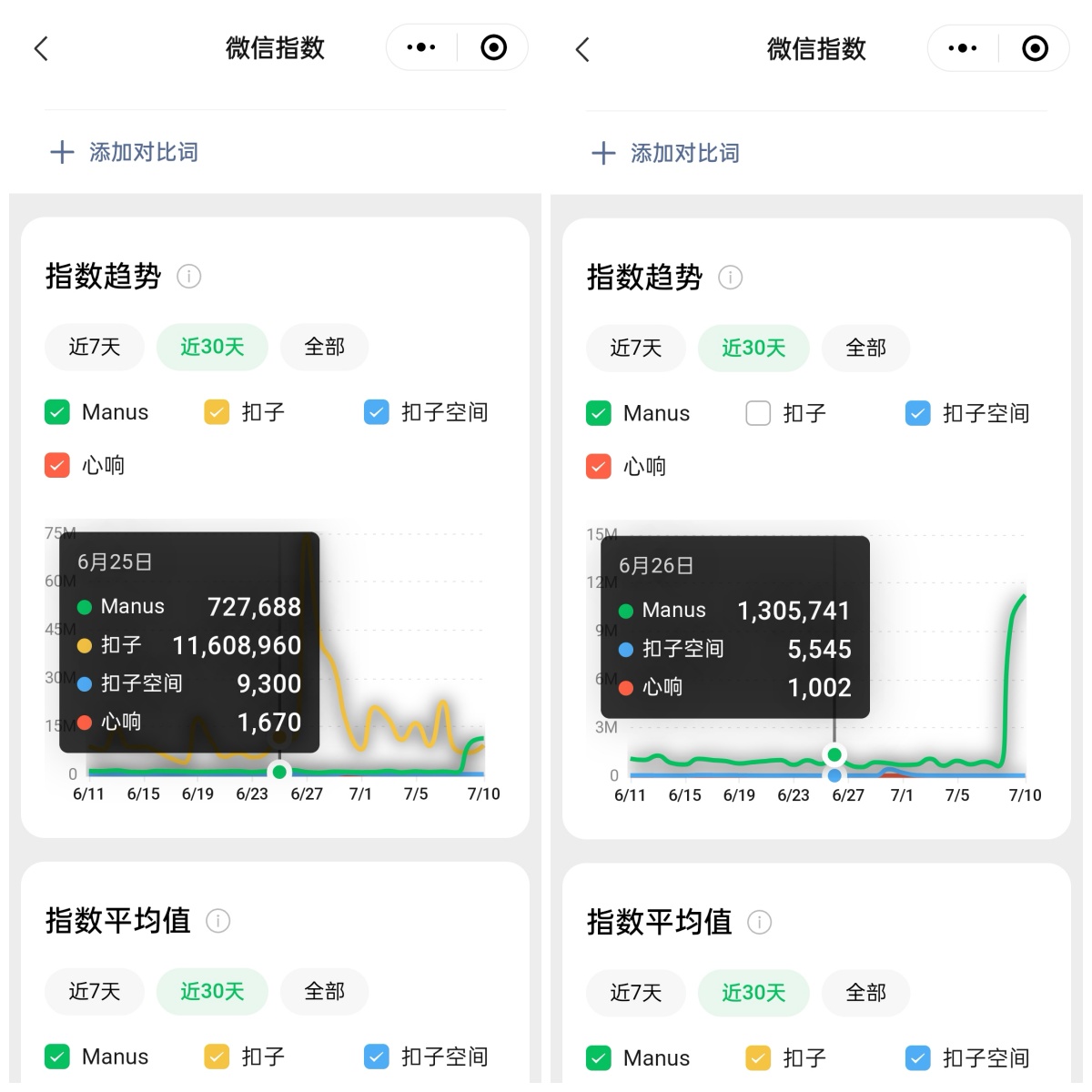
Photo/WeChat
Of course, this is also the result of Manus basically abandoning the domestic market, but the key question is whether this was a reasonable or wrong choice? This is also one of the core debates among many people today. Some believe that whether To B or To C, overseas users generally have a higher willingness to pay than domestic users, implying that Manus, as a startup, made the right choice. Others, however, believe that Manus is missing out on the huge domestic market.
Fairly speaking, Manus has many reasons to focus on the overseas market, and a company has the right to choose its headquarters, market, and users. Conversely, the domestic market is not lacking in teams to create the next Manus or an even better one.
Looking back at the past year, domestic technological development, from foundational large models to application-layer AI agents, has not lagged behind. Whether it's the powerful engineering capabilities demonstrated by DeepSeek or the pace of implementation in the AI agent direction from giants to startups, they all point to one fact: From AI technology to products, China is not lacking top talent and teams.
Moreover, the potential of the domestic market lies in its vastness and complexity.
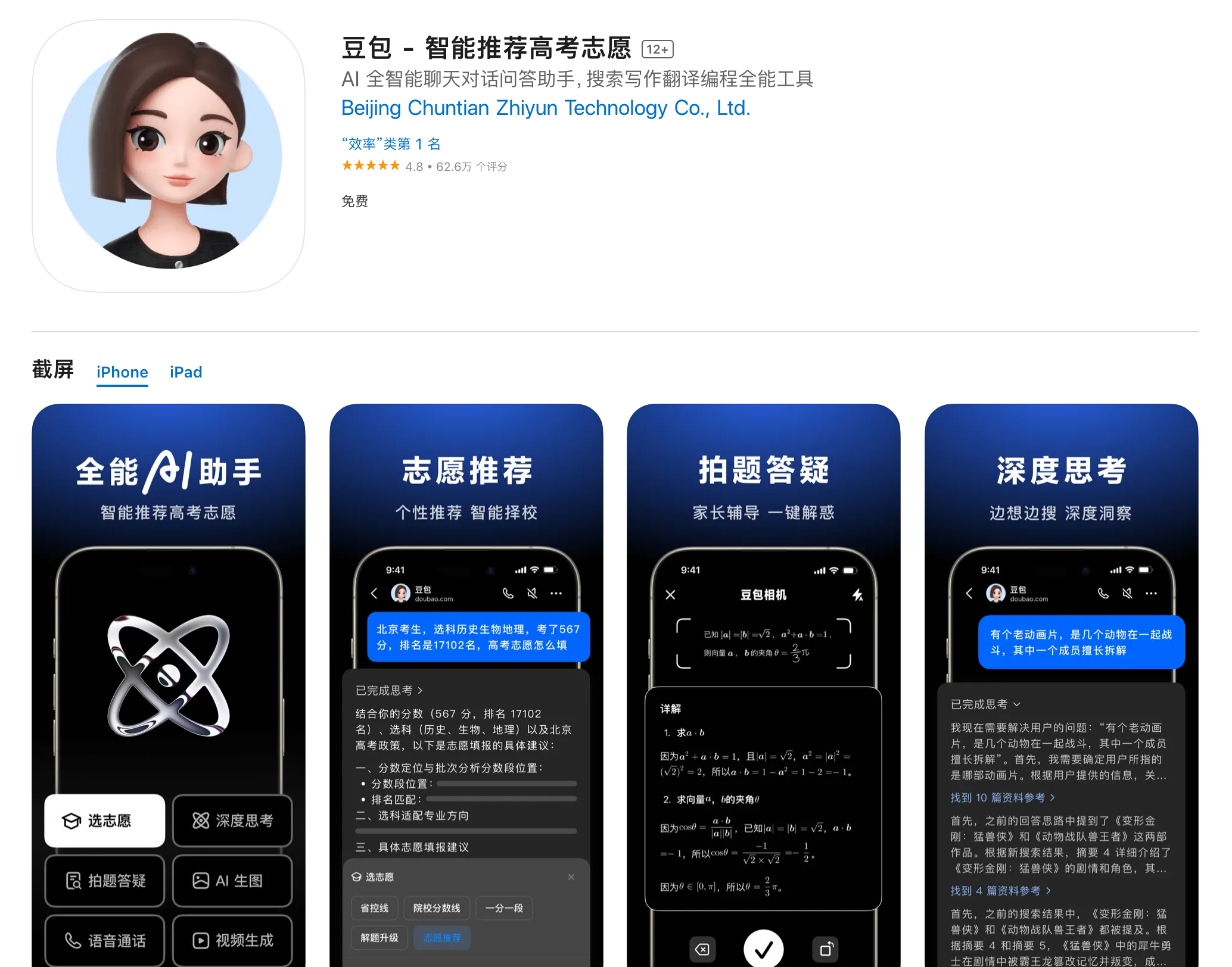
Photo/App Store
On the one hand, there is a huge user base and a high degree of product tolerance. In this market where new apps are launched daily and user habits change rapidly, AI products can quickly gain user attention as long as they are "usable and novel"—even if their functions are far from perfect. The approach of "doing and adjusting simultaneously" allows teams to obtain user feedback in the fastest way, accelerating iteration and improvement.
In May this year, KPMG released a report pointing out that the application rate of AI in the Chinese workplace is as high as 93%, far exceeding the global level of 58%, with 50% of users achieving normalized application levels. Domestic users are willing to try new things, wait patiently, and share their experiences, providing extremely valuable soil for the growth of AI products.
On the other hand, the Chinese market boasts the most complex application scenarios globally, which also means the richest testing environment. From e-commerce customer service to government processes, from PPT writing to financial analysis, AI has to deal with not just English resumes or travel plans but real demands involving multiple languages, rules, and roles. While this complexity increases the difficulty of product refinement, it also allows teams to expose systemic issues early on, paving the way for overseas expansion.
More importantly, today's Chinese AI users are not just "seeking novelty" but have genuine needs and budgets. The enterprise market is opening up its budgets, individual users are willing to pay for AI subscriptions, and even many universities and government departments are procuring AI services for pilot projects.
Of course, for individual consumers, due to consumption levels and habits, paid AI products do have a certain threshold for monetization in China, coupled with the pressure from the "free" business model of domestic giants, posing considerable challenges for startups. From this perspective, Manus's choice cannot be simply judged as right or wrong. Perhaps in its path planning, globalization is the bigger picture, or perhaps the highly competitive domestic market deters it.
But there is no doubt that behind their departure, the domestic market is a vast land full of endless opportunities for all AI practitioners and teams.
Manus Intelligent Agent AI
Source: Leitech
Images in this article are from: 123RF Authentic Stock Photo Library Source: Leitech

